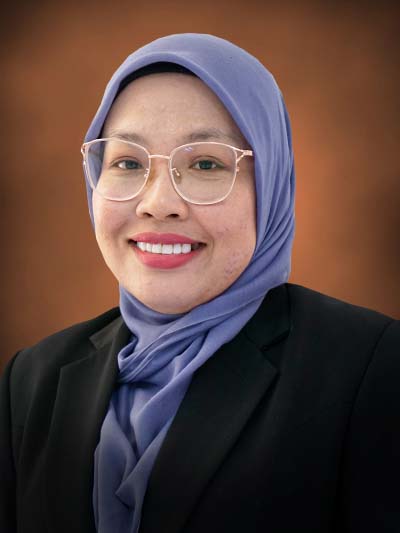DEPARTMENT OF DA’WAH AND HUMAN DEVELOPMENT
The journey towards becoming a preacher commences at this point. Preaching encompasses more than mere verbal communication. The students are equipped with diverse methods to effectively convey goodness and deter wrongdoing. Thus, our aim is to prepare students to embark on the path of da'wah, akin to the duties carried out by prophets on this earth. Thorough evaluations of the courses offered to ensure their relevance in practical contexts. Our team comprises eight lecturers. Each lecturer possesses a high level of competence in the domains of da’wah and human development. Most courses prioritize practical application, imparting valuable skills. The core subjects encompass da'wah methodology, management, communication, psychology, motivation, media publication, counseling, and human development, catering to diverse communities. This blend of courses is pivotal in nurturing proficient preachers, equipped to undertake da'wah responsibilities adeptly post-graduation. Additionally, the department has introduced a comprehensive academic program, encompassing a Ph.D. by research, a Master of Da’wah Development by coursework, a Master of Usuluddin (Da’wah & Human Development) by research, and a Bachelor of Usuluddin with a specialization in Da’wah & Human Development. The curriculum underwent revision in 2019, and the programs received accreditation from MQA. The program extends over 135 credits (3 ½ years/7 semesters), structured as follows:
• University Course – 20 credits
• Academy Core – 10 credits
• Usuluddin Core – 62 credits
• Da’wah & Human Development – 27 credits
• Faculty Elective – 10 credits
• Student Attachment/Placement – 6 credits
Elevating the quality of education remains paramount in our department. Our approach adheres to the University Learning Guidelines, encompassing Class Instructions (lectures, tutorials), Guided Learning (attachments and self-learning), and assessment through assignments, presentations, examinations, and practical engagement. The University Assessment Guidelines include Formative Assessment (assignments, presentations, reports, projects, quizzes, tests, etc.) and Summative Assessment (final examination). These programs present promising career prospects, spanning various domains such as government sectors, enforcement officers, entrepreneurship, writing, Islamic consultancy, Research Officers, lecturing, and beyond. Our robust industry connections include institutions like Yayasan Dakwah Islamiah Malaysia, Persatuan Kebajikan Islam Malaysia, Kelab Mantap Daie, and others, amplifying the opportunities available to our graduates.

Syuhada binti Yahya
Tel: +603 7967 6009
hada@um.edu.my
Last Update: 29/07/2025